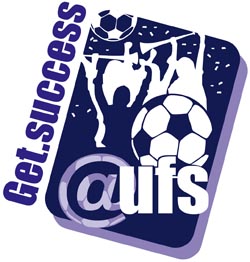 Student Development and Success (SDS) at the University of the Free State (UFS) is focused on helping students succeed as lifelong learners. To accomplish this, SDS has designed Success Week to provide students with the necessary skills and information to help them succeed in their studies.
Student Development and Success (SDS) at the University of the Free State (UFS) is focused on helping students succeed as lifelong learners. To accomplish this, SDS has designed Success Week to provide students with the necessary skills and information to help them succeed in their studies.
The success of the first-semester orientation programme has led to the decision of hosting a Get.Success@UFS 2010: Reloaded programme from 19 to 29 July 2010.
Students who previously attended the programme thoroughly enjoyed the programme and learnt a lot from it. It also became clear that they needed more support. The aim of the Reloaded programme is to enhance students’ thinking processes regarding their personal as well as career development. It is open to all students. The focus of the presentations will not only be on helping students to make a success of their studies but also to provide those students who are completing their studies with useful knowledge and skills to plan for their career pathways.
The Get.Success@UFS 2010: Reloaded programme starts on Monday 19 July with a launch where Prof. Jonathan Jansen, Rector and Vice-Chancellor of the UFS, will address students and motivate them once again for the second half of the 2010 academic year. Thereafter the UFS staff will compete against the SRC in the 5-on-a-side soccer tournament that will take place at Pellies Park. Members of Bloemfontein Celtic will also be present. Students can spend the day participating in the mini soccer tournament or just come and support their teams.
This is an excellent opportunity for students to make new friends and spend the day relaxing before the start of the second academic term. There will be prizes for the winning teams as well as for the best war cry and the most spirited team and fan base. There will also be funky give-aways for the spectators.
For the rest of the week there will be three interactive sessions which students can attend to help equip themselves with the necessary skills to succeed in their studies and future endeavours. The sessions include: Game Plan for Success, How to Build your Fortune, CV Writing, and Job Hunting.
Blackboard training will be hosted during the two weeks to show students how to effectively use this medium in their studies. There will be two opportunities for students to visit and be taken on a tour through the library to learn about the services offered.
All information and detailed programmes are available at www.ufs.ac.za/getsuccessufs .
Media Release
Issued by: Mangaliso Radebe
Assistant Director: Media Liaison
Tel: 051 401 2828
Cell: 078 460 3320
E-mail: radebemt@ufs.ac.za
8 July 2010